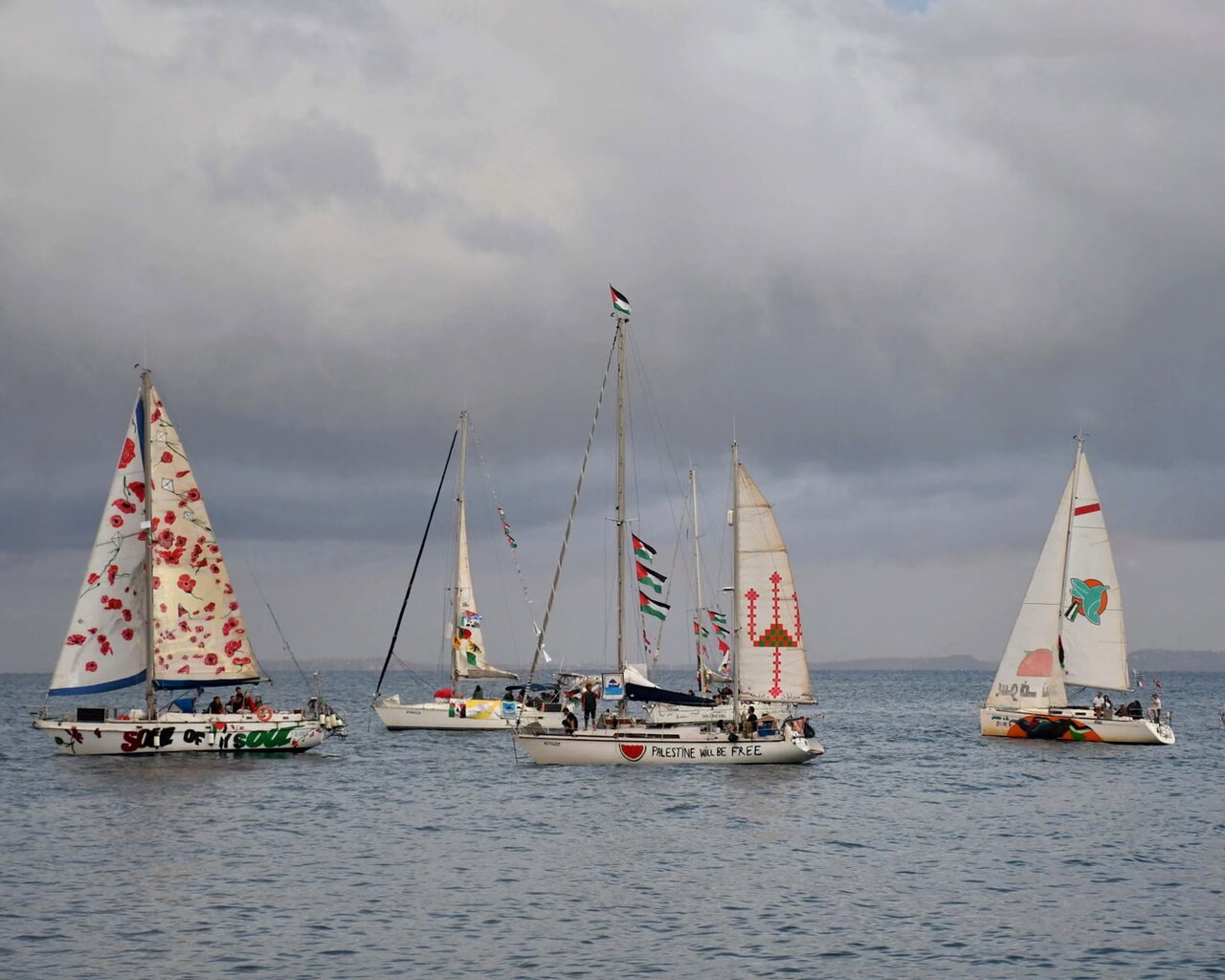Israel’s interception of Gaza aid flotillas sparks global outcry

TEHRAN – Israel’s back-to-back interceptions of two international aid flotillas bound for Gaza have provoked a surge of global condemnation and legal scrutiny, casting renewed light on the blockade of the Palestinian enclave. The seizures — carried out in international waters — targeted the Global Sumud Flotilla a week ago, and the Freedom Flotilla Coalition (FFC) on Wednesday, including its lead vessel The Conscience.
Israeli naval forces stopped part of the Global Sumud Flotilla on October 1, 2025, a 40-vessel aid convoy attempting to deliver humanitarian supplies to Gaza. Over the following two days, Israeli units boarded additional boats, with the final vessel, the Marinette, seized on Friday, October 3, approximately 42.5 nautical miles off Gaza’s coast. More than 450 activists were detained during the multi-day operation. Among those seized were Swedish climate activist Greta Thunberg, French-Palestinian MEP Rima Hassan, and American activist David Adler.
Several detainees later described their treatment in Israeli custody as abusive — alleging beatings, strip searches, blindfolding, and denial of clean water and medical care. These testimonies have heightened concerns about Israel’s handling of detainees and the legality of its actions at sea.
The second naval assault occurred when Israeli forces intercepted the Freedom Flotilla Coalition’s convoy in international waters. According to the FFC, the lead ship The Conscience — carrying 93 journalists, doctors, and human rights defenders — was attacked first before three smaller boats were seized. The flotilla was transporting more than $110,000 worth of essential medical and nutritional supplies for Gaza’s collapsing hospitals.
Israel’s Ministry of Foreign Affairs confirmed both raids, calling them enforcement of a “legal naval blockade” and claiming all passengers were safe and would be deported. But the legality of such operations has been strongly contested. “Israel has no jurisdiction over international waters,” the FFC said. Turkey’s Foreign Ministry condemned the raid as “a grave violation of international law” and “an act of piracy,” while Malaysia’s Prime Minister demanded the immediate release of Malaysian nationals on board.
Both flotillas were part of a growing global civil society campaign to challenge Israel’s blockade, which rights groups describe as collective punishment against Gaza’s 2.2 million residents. These missions aim to deliver humanitarian aid directly to Gaza and confront the legal basis of Israel’s siege.
Legal experts have cited potential breaches of the United Nations Convention on the Law of the Sea, noting that intercepting civilian humanitarian vessels in international waters violates established maritime principles. “These were civilian aid ships, not combat vessels,” a maritime law scholar observed. “Their interception underscores Israel’s extraterritorial use of force in defiance of international law.”
The international reaction has been swift. Turkey and Malaysia have lodged formal protests. Global rights groups have condemned Israel’s actions. The detention of lawmakers, medical professionals, and prominent activists has amplified the diplomatic fallout.
Israel continues to defend the blockade as a security necessity. Critics counter that this framing ignores the humanitarian catastrophe in Gaza, where hospitals face severe shortages, malnutrition is widespread, and infrastructure is collapsing under siege conditions.
The near-consecutive targeting of the Global Sumud Flotilla and The Conscience marks a sharp escalation in Israel’s maritime enforcement. What Israel calls “blockade enforcement” is increasingly being framed internationally as an unlawful obstruction of humanitarian aid — a confrontation now playing out on legal, diplomatic, and moral fronts worldwide.
